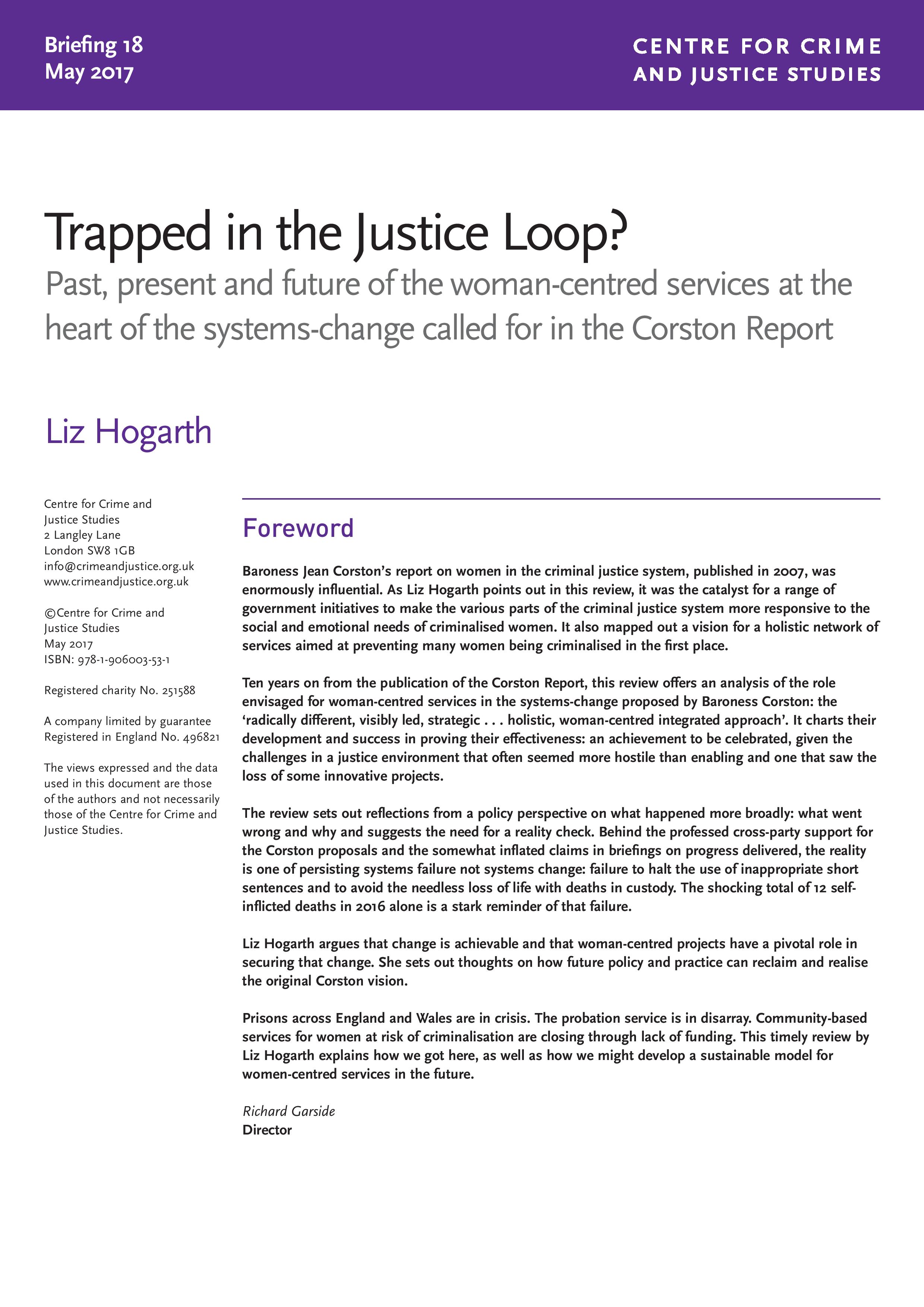Former Ministry of Justice lead on women in the criminal justice system, Liz Hogarth OBE, calls for an end to the 'out-dated concept of prison for women', in this important assessment of justice policy over the past decade
Baroness Jean Corston’s report on women in the criminal justice system, published in 2007, was enormously influential.
As Liz Hogarth points out in this review, it was the catalyst for a range of government initiatives to make the various parts of the criminal justice system more responsive to the social and emotional needs of criminalised women.
It also mapped out a vision for a holistic network of services aimed at preventing many women being criminalised in the first place.
Ten years on from the publication of the Corston Report, this review offers an analysis of the role envisaged for woman-centred services in the systems-change proposed by Baroness Corston: the ‘radically different, visibly led, strategic . . . holistic, woman-centred integrated approach’.
It charts their development and success in proving their effectiveness: an achievement to be celebrated, given the challenges in a justice environment that often seemed more hostile than enabling and one that saw the loss of some innovative projects.
The review sets out reflections from a policy perspective on what happened more broadly: what went wrong and why and suggests the need for a reality check.
Behind the professed cross-party support for the Corston proposals and the somewhat inflated claims in briefings on progress delivered, the reality is one of persisting systems failure not systems change: failure to halt the use of inappropriate short sentences and to avoid the needless loss of life with deaths in custody.
The shocking total of 12 self-inflicted deaths in women's prisons in 2016 alone is a stark reminder of that failure.
Liz Hogarth argues that change is achievable and that woman-centred projects have a pivotal role in securing that change. She sets out thoughts on how future policy and practice can reclaim and realise the original Corston vision.
Prisons across England and Wales are in crisis. The probation service is in disarray. Community-based services for women at risk of criminalisation are closing through lack of funding.
This timely review by Liz Hogarth explains how we got here, as well as how we might develop a sustainable model for women-centred services in the future.
